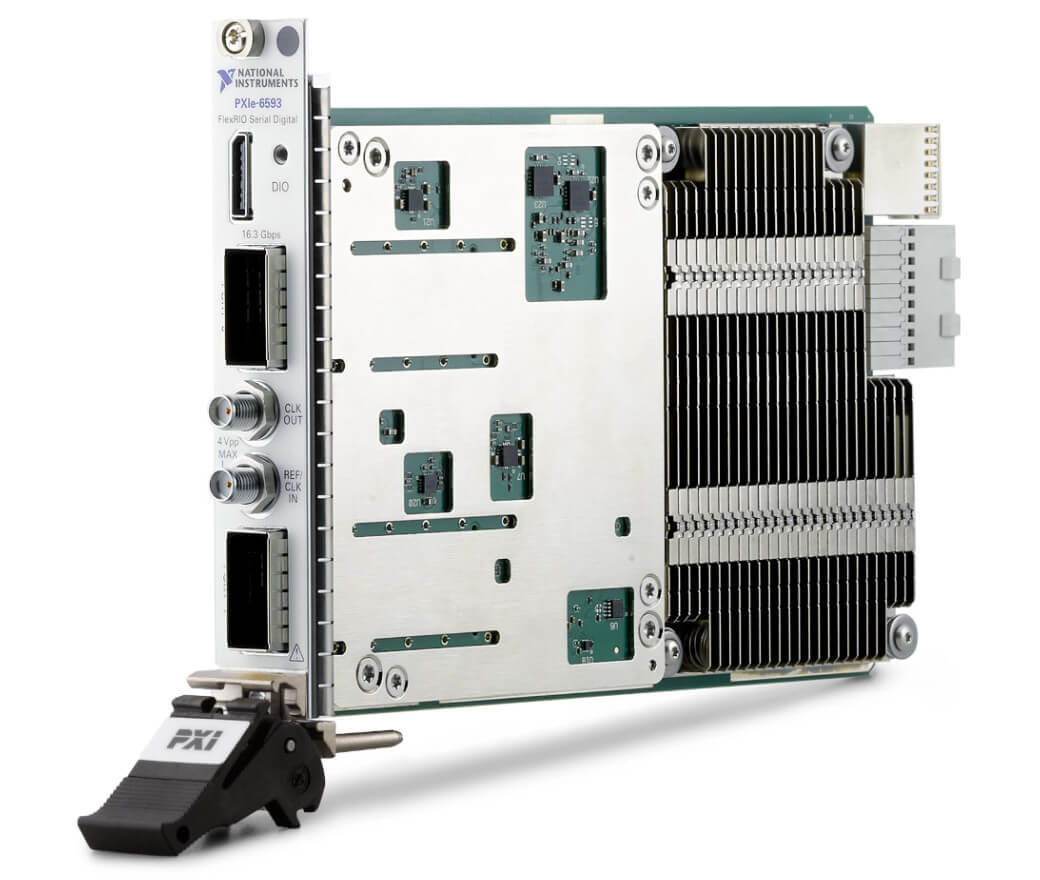NI PXIe-6593 Serial RapidIO® Protocol Test Solution
The NI PXIe-6593 Serial RapidIO® Protocol Solution for LabVIEW™ is exclusively available on the National Instruments 6593 card. The SRIO Protocol Solution for LabVIEW™ is a flexible tool for test environments that allows the user to record up to 2 simultaneous channels of SRIO. The design is based around the widely utilized PCAP file format for file I/O that allows the user to leverage a wealth of open-source tools and guides to view and analyze captured data.
The SRIO Protocol Solution for LabVIEW™ has two fully functional and independent SRIO endpoints. Each SRIO port is automatically managed and maintained by the FPGA and requires no host/software interaction. The FPGA updates and maintains its memory bank (2GB per port) based on SRIO transactions. The port memory can be accessed asynchronously at any time by the host. The design provides a way to have a SRIO device completely integrated into LabVIEW™ without the software overhead of maintaining the link.
The endpoint processes and responds to requests without host/software intervention. The on-board memory is updated with incoming NWRITE and Message packets. NWRITE operations are stored at the addressed location while Message packets are stored in a circular buffer.
Packet generation can be configured to be regular and periodic (hardware offload mode) or driven by the host software. When in hardware offload mode, data generation is handled by a scripting-based hardware offload engine. The user defines a script that determines the format and timing of any data transmission. The script is executed completely in hardware which gives the user a very high degree of precision and control in creating data transmission patterns.
Optionally, the system can be operated as a standalone instrument and controlled remotely via a network connection. Command and control is handled via plain text UDP commands which allows integration into test systems running C#, C++, Python, and more.
DOWNLOAD DATA SHEET REQUEST INFORMATION